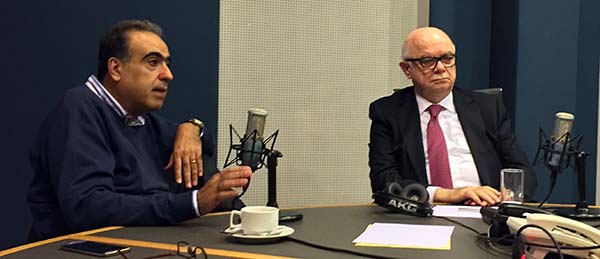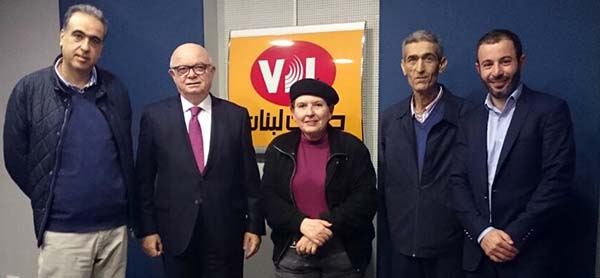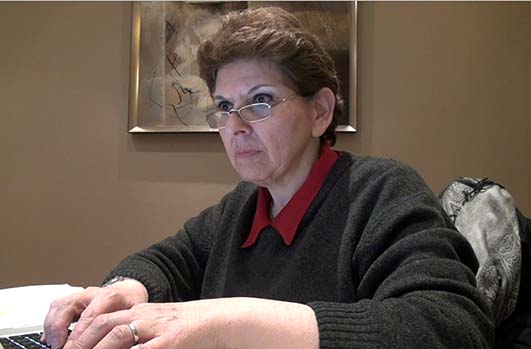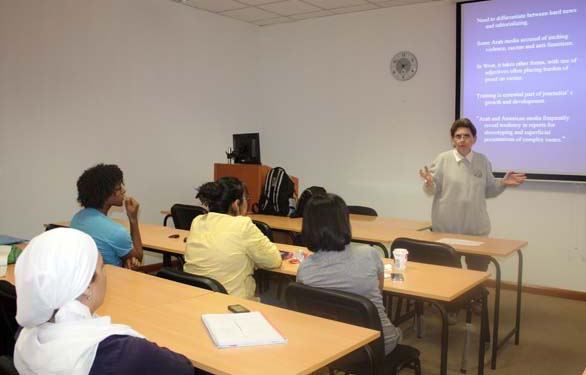Migration, refugees and human trafficking once again featured at a three-day workshop in Tunis grouping 16 journalists from various media who learned how to shape the story, focus the narrative, keep it ethical, and make it more relatable.

How to cover migration, refugees and human trafficking
Media Unlimited director Magda Abu-Fadil, cameraman/editor David Hands and senior media training and exchange expert at the Open Media Hub Petko Georgiev led the mini-course.

Magda Abu-Fadil and David Hands mentor Tunisian journalists during workshop on migration and media
It aimed at helping the reporters and editors better understand the subject, identify who the stakeholders are, acquire the correct terminology to define people and their status, know where to dig for contextual information, and what traps to avoid when reporting the story.

Tunisian journalists complete in-session exercise
The workshop in November 2018 included journalists from Tunisia’s national television channel, newspapers, news websites, the state-run national news agency and radio stations.
They had proposed story ideas to pursue prior to the training and several went out with Hands to shoot footage and conduct interviews during the sessions.

David Hands helps edit footage for a migration story
On their return to the mentoring periods the journalists were then guided by Hands and Georgiev on the mechanics of assembling the elements into viable short pieces for broadcast while Abu-Fadil pitched in advice on ethics and interviewing techniques.
The previous week Abu-Fadil moderated a panel at the Assises Internationales Du Journalisme De Tunis where some 500 Francophone participants from Euromed and West African countries gathered to probe the question: Journalism Useful for Citizens?
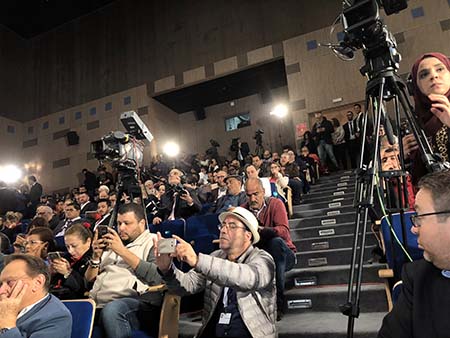
Assises Internationales Du Journalisme De Tunis drew 500 Francophone participants from Euromed and West African countries
The three-day event in the Tunisian capital – almost 50 thematic sessions, debates, exhibitions and side activities – comes at a critical time when freedom of expression is being tested and violated on a daily basis in many of the countries from which the delegates hailed.
Abu-Fadil chaired a session entitled “No Useful Journalism Without Verification: How Do We Confirm An Image, Information?” during which she also plugged the UNESCO book she co-authored “Journalism, Fake News and Disinformation” .

Abu-Fadil (right) chairs panels on verification
The Assises Internationales Du Journalisme De Tunis is supported financially and programmatically by the Open Media Hub, which is implemented by the Thomson Foundation.

